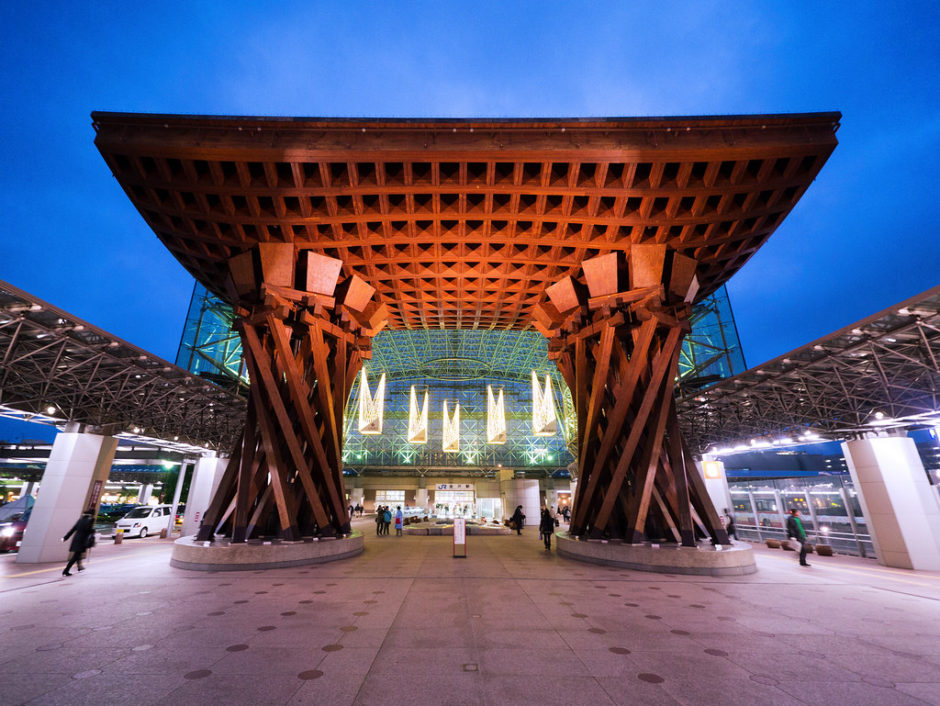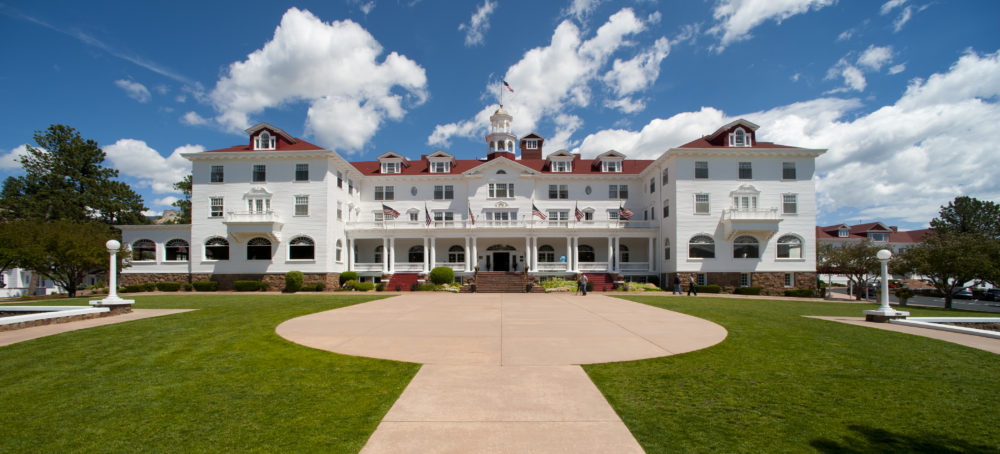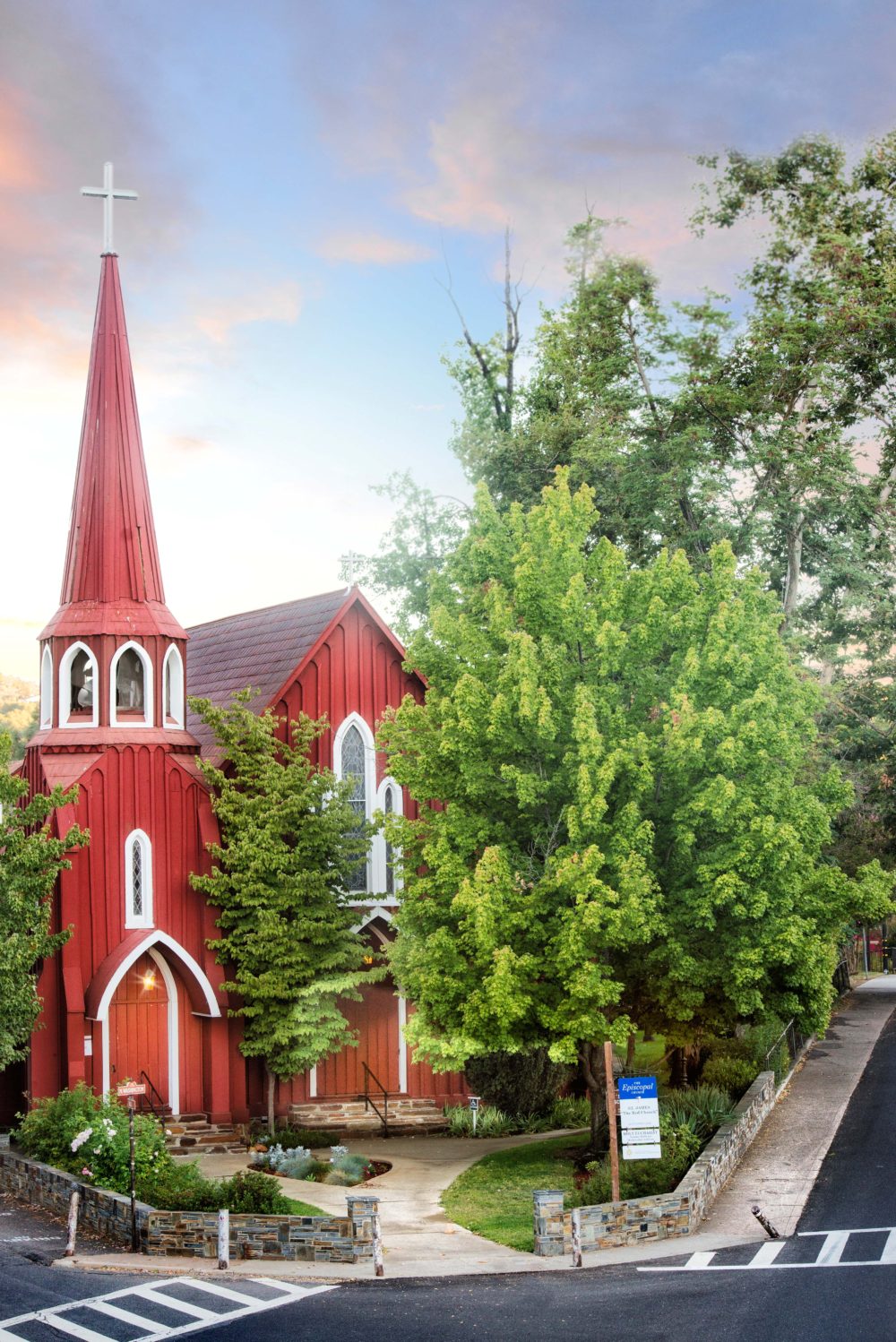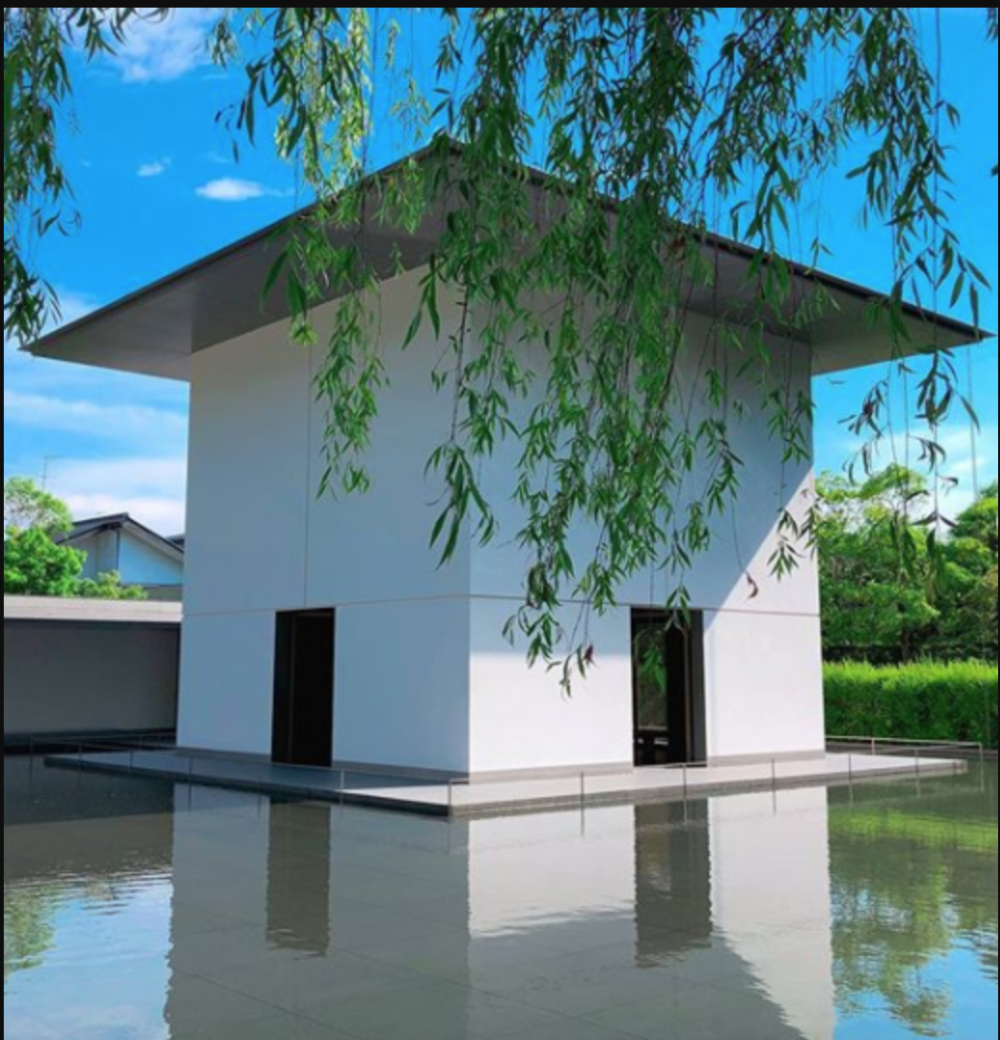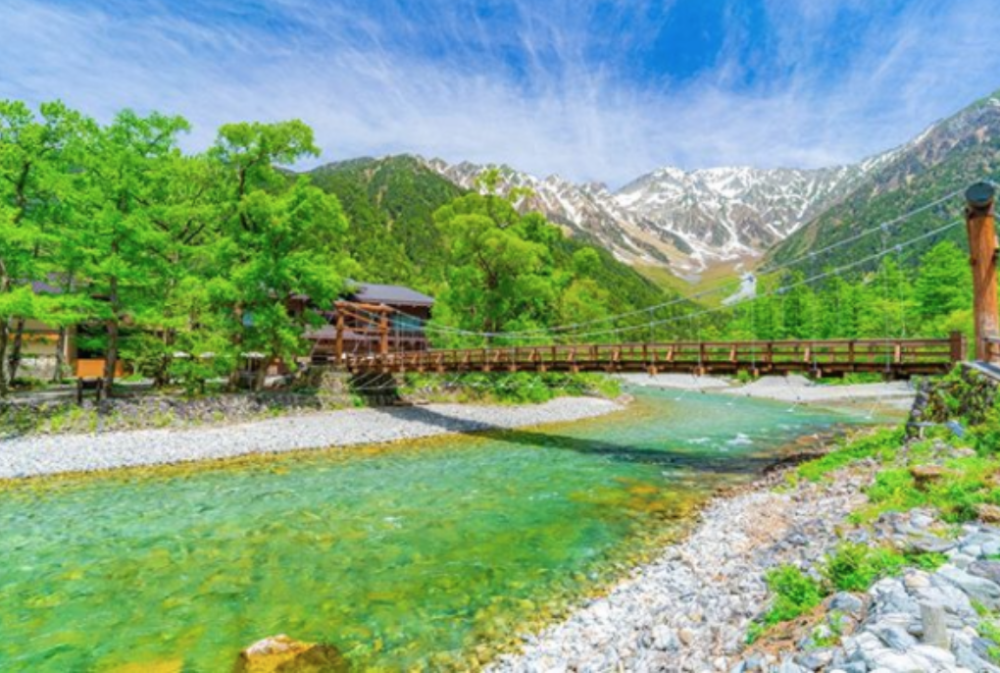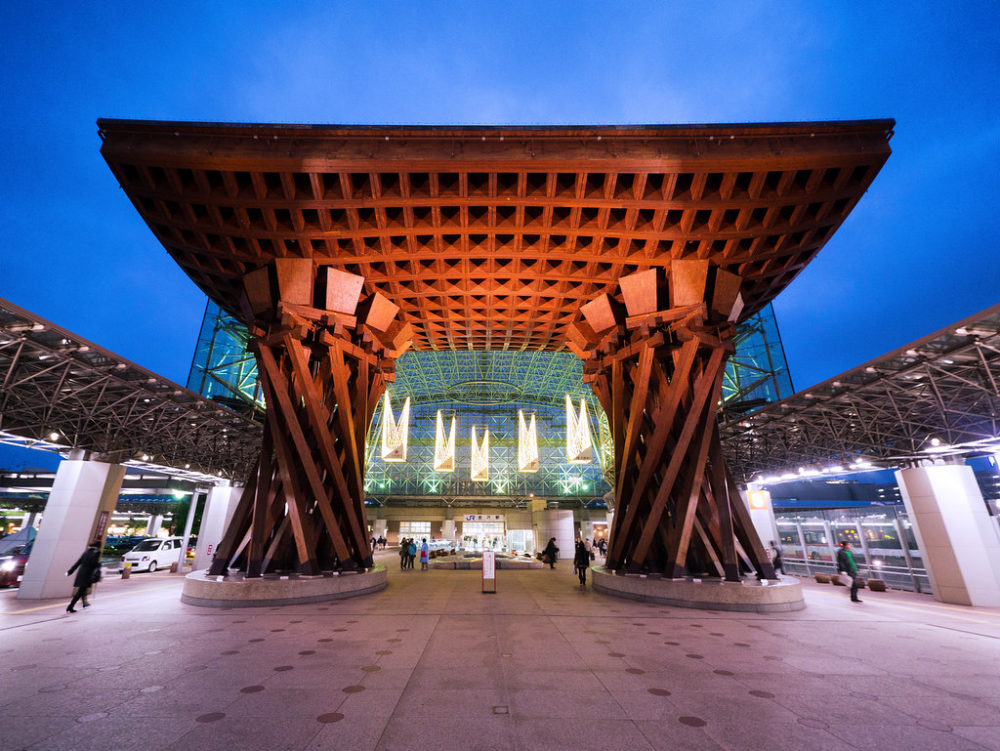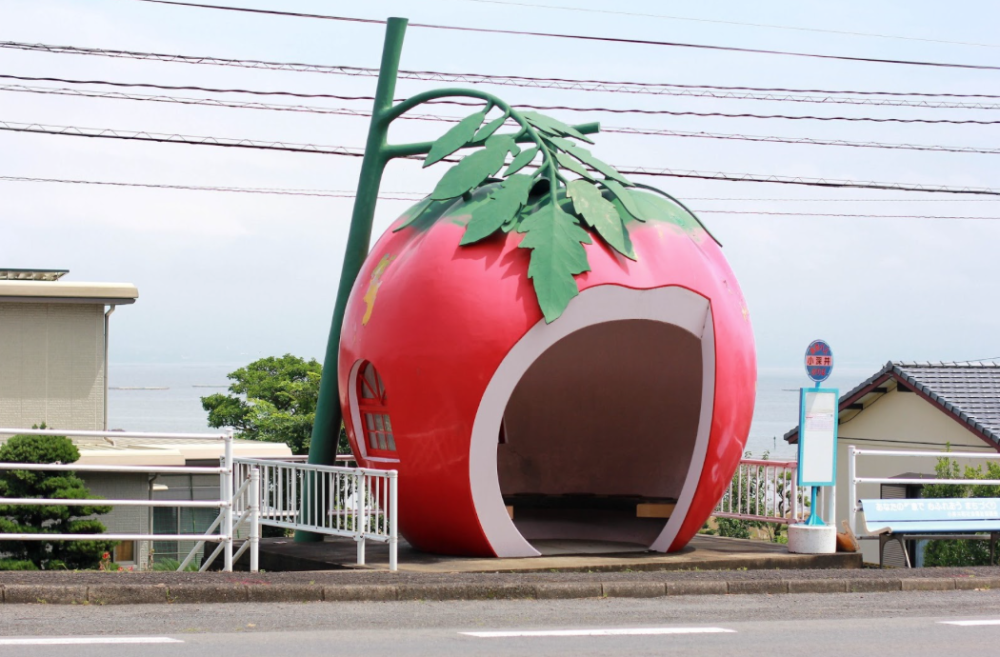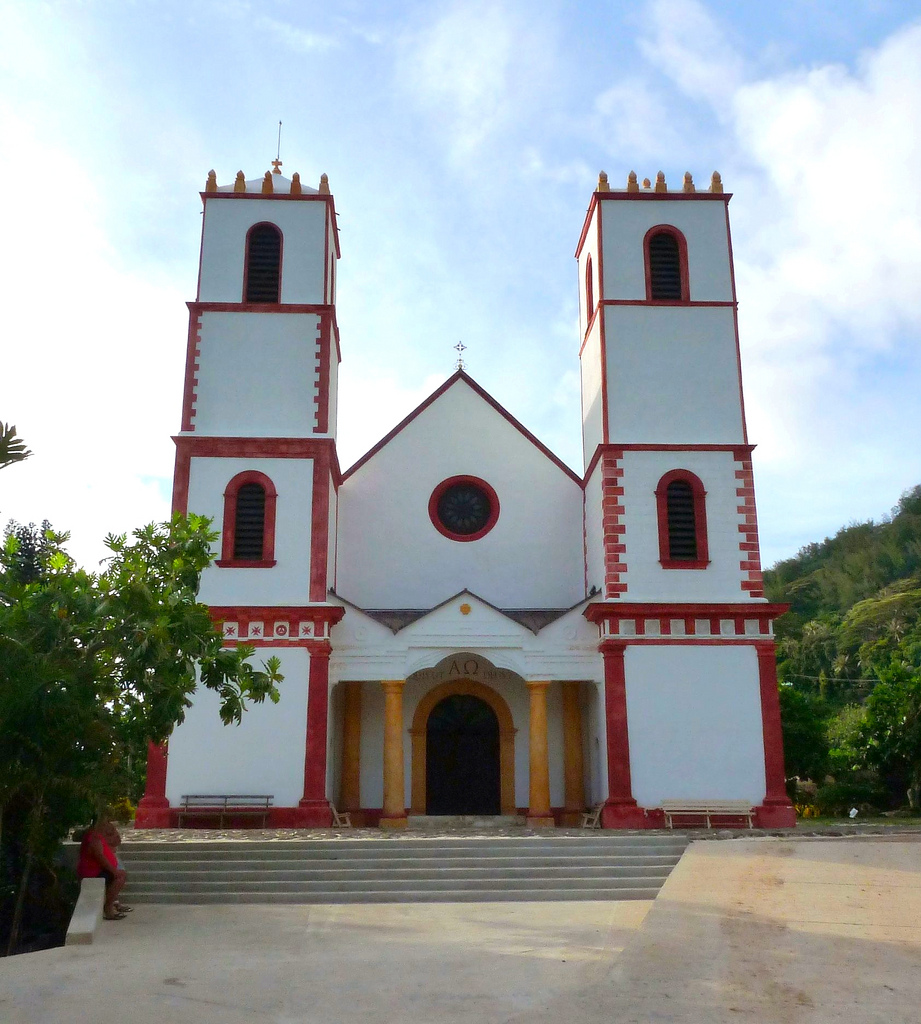TRAVEL INSPIRED BY WES ANDERSON
Ahead of the book launch Accidentally Wes Anderson by Wally Koval, based on the popular instagram account of the same name, we take a look at Anderson-esque sites, buildings and landmarks in all their faded grandeur that transport us to the directors unique pop-pastel aesthetic from the USA to Japan and The Islands of Tahiti.
USA
The Stanley Hotel, Colorado
Just five miles from the Rocky Mountain National Park in northern Colorado, The Stanley Hotel was the setting that inspired Stephen King’s best-selling novel The Shining after an evening spent in room 217. The hotel’s large white facade, immaculately manicured lawn and red roof are a study in old-world opulence. It’s an impression of high society that only grows with its red-carpeted interiors, dotted with heavy-framed mirrors, portraits and grand, sweeping staircases. www.colorado.com
Benedum Centre for the Performing Arts, Pittsburgh
The Benedum Center for the Performing Arts is a theater and concert hall located on 7th Street in the Cultural District of Pittsburgh. Designed by the Philadelphia architectural firm Hoffman-Henon, it was built in 1928 as the Stanley Theatre and hosts local ballet, theater & opera. The former movie palace has seen legends, including Frank Sinatra, Frank Zappa, Prince and Bob Marley. www.visitpittsburgh.com
CALIFORNIA
The Wild West Mariposa Hotel Inn – Mariposa Yosemite, California
Mariposa Hotel Inn is the oldest historic Yosemite area hotel – if Wes Anderson made a modern western pic, this is the hotel the characters would stay in! The hotel has charming hotel rooms with character and history, with six uniquely decorated hotel rooms with beautiful solid oak woodwork, period antiques and coordinated wallpaper. Located in the heart of the historic Gold Rush town of Mariposa, which is the home of Yosemite and perfect for Anderson-esque adventures! www.yosemite.com
Picture Perfect Mission – Santa Barbara, California
Travel back in time to Santa Barbara’s earliest days at the historic Old Mission Santa Barbara. With its grand double pastel pink bell towers, lush gardens and the majestic Santa Ynez mountains as a backdrop, the Mission is one of the city’s most picturesque landmarks. Known as “Queen of the Missions” for its exceptional beauty, the Santa Barbara Mission was founded by the Spanish Franciscans in 1786. More than 200 years later, it’s still an active parish church and a vital and enduring element of Santa Barbara’s cultural landscape.
www.santabarbaraca.com
The garden of dreams at Lotusland – Santa Barbara, California
Madame Ganna Walska, a well-known Polish opera singer and socialite, purchased the Montecito, Santa Barbara estate in 1941 and spent the next 43 years creating Lotusland, today recognised as one of the ten best gardens in the world. The spectacular collections of exotic plants on the 37-acre property are a personal expression of Walska’s penchant for the dramatic, the unexpected, and the whimsical – she sounds like a real life Wes Anderson character! Lotusland is home to several extraordinary plant collections and around each corner there is a surprise of unique garden design and plant species. After her death in 1984, Lotusland became a nonprofit botanic garden and opened to the public in 1993. www.santabarbaraca.com
The Red Church – Yosemite’s Tuolumne County
St James Anglican Church, also known as ‘The Red Church’ is a Tuolumne County icon. Located in downtown Sonora, one of Tuolumne seven historic gold rush towns, the striking eight sided steeple stands tall at the head of Main Street and an example of Swedish architectural style. The Reverend John Gassman, a native of Norway, served as both the architect and the first minister of St. James. Built in 1860, during the post-Gold Rush era the stained glass windows, unusual barrel arch eaves, and striking color combine to create one of the most original frame structures in the Gold Country. www.visittuolumne.com
JAPAN
Suzuki Museum by Buddist philosopher, Ishikawa
The D.T. Suzuki Museum is dedicated to the life and ideas of D.T. Suzuki, a world-famous Buddhist philosopher. The museum’s building, designed by architect Taniguchi Yoshio, uses clean, simple lines as an architectural interpretation of Suzuki’s philosophy. The serene, open spaces are meant to inspire contemplation. There are exhibitions of Suzuki’s writings and photos that emphasise his thoughts about Zen Buddhism and its influence on daily life. Take time for thoughtful meditation in the three idyllic landscaped gardens, which include a glassy landscaped pond for self-reflection. www.ishikawatravel.jp/en/
The Tree of Water, Machiniwa, Hachinohe
Machiniwa means ‘garden of the city’, the Machiniwa is Hachinohe’s public city square designed with the perfect balance of light, water and greenery. The Machiniwa is a place for people to rest, connect and hold events, it was designed to enable visitors and locals alike to have spontaneous interactions that will promote the continuation of the sense of community in the city encouraging people to share time with each other, across all generations. In the center there is a blue sculpture depicting the image of a tree known as the ‘Tree of Water’ proposed by the Hachinohe Junior Chamber.This is the Symbol of Machiniwa, it this comes from the image of Hachinohe being a tree growing out of the ocean which is particularly fitting for the city as it has always been one connected to the ocean and sustained by it over the centuries. https://visithachinohe.com/en/
Kappa Bridge, Nagano Prefecture, Three Star Road
Kappabashi is a suspension bridge stretching 36.6 meters over the Azusa River in the center of Kamikochi and is symbolic to the area. Visitors can see Mt. Yakedake and Hotarenpo mountain range from the bridge. ‘Kappa’ is an imaginary creature that originated in Japan. It is said that long ago there was an abyss around this area where the Kappa lived. Another story says that travellers once waded through the river by putting clothes on their head, so they resembled Kappa. From the bridge, hiking trails lead up and down the valley and towards the summits of the surrounding mountains. www.mitsuboshi-kaidou.com/
Tsuzumimon Gate, Kanazawa City, Tree Star Road
Whilst travelling along the Three Star Road, which connects Kanazawa, Gokayama, Shirakawa-go, Takayama and Matsumoto, stop off at Kanazawa Station and marvel over the city’s main gateway and rail station. The station underwent massive renovations in 2005 and is an important transport and shopping hub. The wooden Tsuzumimon Gate outside the east exit is modelled after traditional Japanese drums called tsuzumi. The gate’s unique style has become a contemporary symbol of Kanazawa. The gate is connected to a large, contemporary-style glass structure called the Motenashi Dome and is a marvel to look at. www.mitsuboshi-kaidou.com/
Sugamo Shinkin Bank, Saitama
Located in the most populous city of Saitama stands the Sugamo Shinkin Bank. Architect Emmanuelle Moureaux created a playful dynamic façade by varying the depths of protruding cubic masses that double up as flower boxes. The building has 12 layers of colors, stacked up like a rainbow giving the building an animated touch. These layers illuminate at night to create a warm and welcoming atmosphere. www.japan.travel
Fruits Bus Stops in Nagasaki, Kyushu
Bus stops located in the small Japanese town of Konagai, in the outskirts of Isahaya, in Nagasaki Prefecture, come in five different flavours; watermelon, strawberry, orange, muskmelon and tomato. This line of unique and beautiful bus stops shaped like fruits runs southwards along National Route 207. Entering this area is like getting lost inside a fairy tale fantasy world that can only be found in books. It was said that through the influence of “The Journey Exposition Nagasaki” in 1990, these bus stops were built to bring harmony to those who visit. www.visit-kyushu.com
Osaka Expo Park, Japan
Walking into the Osaka Expo Park visitors are welcomed by the “Tower of the Sun”, the feature was created by Japanese artist Taro Okamoto, it was constructed as part of the Theme Pavilion in the Symbol Zone of the 1970 Japan World Exposition in Osaka and has been preserved as a landmark of the Expo. The tower stands at 70 meters and hosts three faces; the Golden Mask placed at the top of the tower symbolising the future, the Face of the Sun placed at the front symbolising the present and the Black Sun placed at the back symbolising the past. www.japan.travel
THE ISLANDS OF TAHITI
St. Michael’s Cathedral, Mangareva Island
St. Michael’s Cathedral, also known as the Rikitea Cathedral, is a parish of the Catholic Church located on Mangareva Island in the Gambier Islands of French Polynesia. The neo-gothic church is stunningly grand and stands as the largest church in the South Pacific. It was built in 1839 out of burned limestone and painted sparkling white. The building fits 1200 people and is three times larger than the cathedral in Pape’ete in Tahiti which is built by the same architect. Inside, Polynesian motives play against the classic Catholic themes, with the altar decorated with fine pearl oyster engravings encased with black pearls. https://tahititourisme.uk/en-gb/

